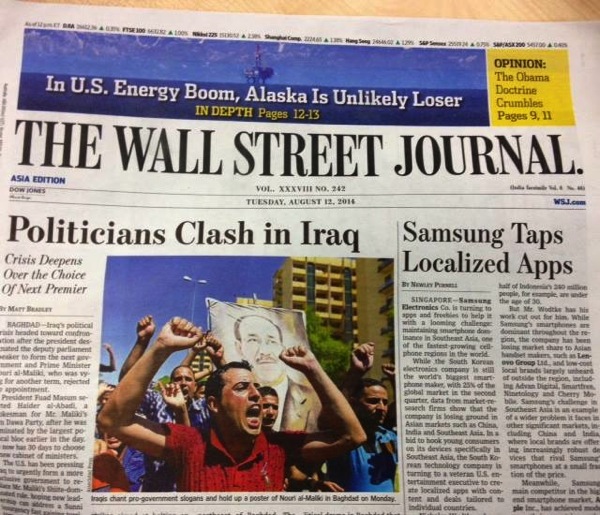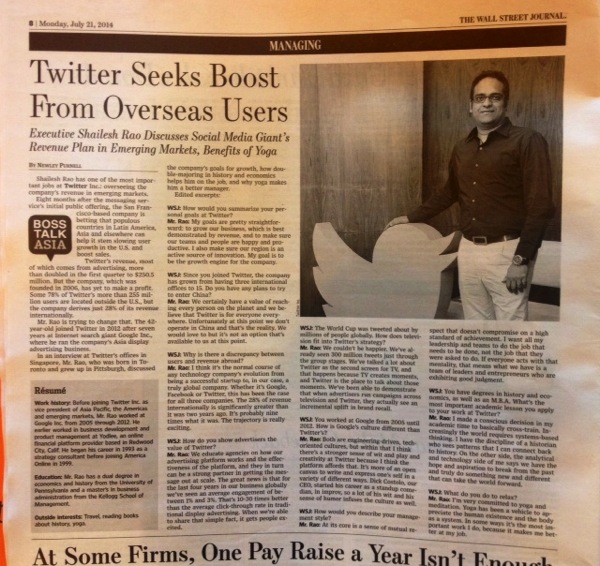What’s Microsoft’s role in a world that is less and less PC-based and increasingly mobile-focused?
Chief Excutive Satya Nadella last week sent a long email to his charges that provided some hints:
A snippet:
We live in a mobile-first and cloud-first world. Computing is ubiquitous and experiences span devices and exhibit ambient intelligence. Billions of sensors, screens and devices – in conference rooms, living rooms, cities, cars, phones, PCs – are forming a vast network and streams of data that simply disappear into the background of our lives. This computing power will digitize nearly everything around us and will derive insights from all of the data being generated by interactions among people and between people and machines. We are moving from a world where computing power was scarce to a place where it now is almost limitless, and where the true scarce commodity is increasingly human attention.
From my colleague Shira Ovide’s story:
Microsoft Corp. Chief Executive Satya Nadella, after five months on the job, signaled Thursday he won’t quickly reshape what Microsoft does, but is likely to cut the number of people doing it.
In a more than 3,000-word email to employees, Mr. Nadella said Microsoft needed to “rediscover our soul,” and he pointedly defined Microsoft’s mission not as delivering long-standing software products such as Windows or Office, but broadly as developing technology to help people live better lives and businesses run more efficiently.
The missive from Mr. Nadella, the third CEO in Microsoft’s 39-year history following Bill Gates and Steve Ballmer, didn’t shed much light on how his Microsoft would look and act differently than the company of his predecessors. Mr. Nadella’s statements suggest he wants to inject urgency and speed without taking Microsoft in a new direction.




